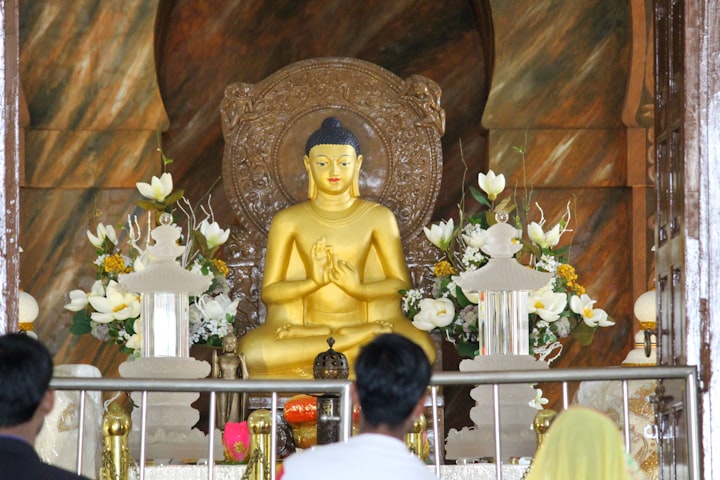The Maurya Empire
Largest and most powerful empires of ancient India, ruling over a vast territory from around 321 BCE to 185 BCE

The Maurya Empire was one of the largest and most powerful empires of ancient India, ruling over a vast territory from around 321 BCE to 185 BCE. The empire was founded by Chandragupta Maurya, a military leader who overthrew the ruling Nanda dynasty and established the Maurya dynasty.
Under the leadership of Chandragupta Maurya and his successors, the Maurya Empire grew to encompass much of present-day India, as well as parts of Pakistan, Bangladesh, and Afghanistan. The empire was characterized by a centralized government, a strong military, and an efficient administrative system that facilitated trade and commerce throughout the region.
One of the most notable achievements of the Maurya Empire was the development of a standardized system of weights and measures, which facilitated trade and commerce throughout the region. The empire also established a network of roads and canals, which helped to connect different parts of the empire and facilitate the movement of goods and people.
The Maurya Empire was also known for its strong military, which was organized into a hierarchical system of ranks and divisions. The army was composed of infantry, cavalry, and war elephants, and was supplemented by a network of spies and informants who provided intelligence on enemy movements and activities.
One of the most famous rulers of the Maurya Empire was Ashoka the Great, who ruled from around 268 BCE to 232 BCE. Ashoka is known for his conquests of neighboring territories and his eventual conversion to Buddhism, which led him to renounce violence and promote the principles of non-violence and religious tolerance throughout the empire.
Ashoka is also known for his extensive rock and pillar edicts, which were inscribed throughout the empire and served as a means of communicating his policies and beliefs to the people. The edicts promoted the principles of social welfare, religious tolerance, and ethical conduct, and helped to establish Ashoka as one of the most influential rulers of ancient India.
The Maurya Empire declined in the centuries following Ashoka's rule, due in part to internal conflicts and external invasions. The empire eventually fell to the invading forces of the Shunga dynasty in around 185 BCE, bringing an end to one of the most significant periods of ancient Indian history.
Despite its relatively short lifespan, the Maurya Empire had a profound impact on the development of Indian culture and society. The empire's centralized government and administrative system served as a model for later dynasties, and its achievements in the fields of trade, commerce, and military organization helped to lay the foundation for the development of the Indian subcontinent.
The Maurya Empire also played a significant role in the spread of Buddhism throughout India and beyond. The religion, which had its origins in the teachings of the Buddha in the 5th century BCE, became increasingly popular under the patronage of Ashoka and other Mauryan rulers, and helped to establish India as a major center of Buddhist scholarship and practice.
In conclusion, the Maurya Empire was one of the most significant periods of ancient Indian history, characterized by a centralized government, a strong military, and an efficient administrative system. The empire's achievements in the fields of trade, commerce, and military organization helped to shape the development of the Indian subcontinent, and its promotion of Buddhism had a lasting impact on the religious and cultural landscape of the region.
Furthermore, the legacy of the Maurya Empire has continued to influence Indian history and culture over the centuries. The empire's administrative system and emphasis on ethical conduct and social welfare have played a significant role in shaping Indian political philosophy, and its promotion of non-violence and religious tolerance continues to inspire movements for peace and social justice. The Maurya Empire remains an important chapter in the rich and complex history of India, and a testament to the enduring legacy of ancient Indian civilization.





Comments
There are no comments for this story
Be the first to respond and start the conversation.